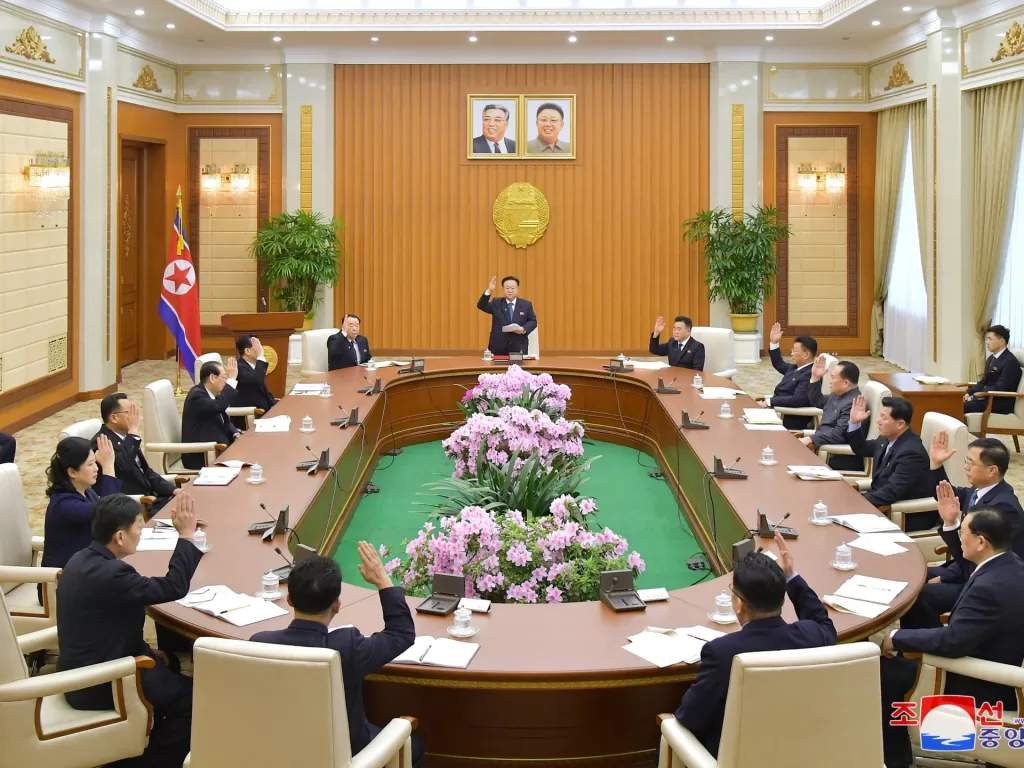Relations have deteriorated as Pyongyang ramps up weapons development and Seoul bolsters ties with US, Japan.
The latest decision comes after Pyongyang last month declared Seoul its main enemy, jettisoned agencies dedicated to reunification, and threatened to occupy the South during war.
The Supreme People’s Assembly, which takes formal steps to adopt policy allegedly dictated by the ruling Workers’ Party, on Wednesday voted to scrap the law on inter-Korean economic cooperation, the official Korean Central News Agency (KCNA) reported on Thursday.
Relations between the two Koreas have been in a deadlock, with key projects suspended for years, as Pyongyang ramps up its weapons development programmes and Seoul bolsters its military cooperation with the United States and Japan.
The assembly also abolished laws on the operation of the Mount Kumgang tourism project, which offered tours and was a symbol of economic cooperation between the two sides that began in the early 2000s, drawing nearly two million South Korean visitors. The resort was built by South Korea’s Hyundai Asan.
The project was suspended in 2008 when a South Korean tourist was shot dead by North Korean guards for straying into a restricted zone.
The Mount Kumgang resort was once one of the two largest inter-Korean projects, along with the now-shuttered Kaesong industrial zone. During its peak, it housed the factories of 125 South Korean companies employing 55,000 North Korean workers.
Seoul pulled out of the venture – launched in the wake of a 2000 inter-Korean summit – in 2016 in response to a nuclear test and missile launches by the North, saying Kaesong profits were helping fund the provocations.
‘Not rational’
North Korea last year ended a military pact signed in 2018 to de-escalate tensions near the military border which was drawn up under a truce ending the 1950-53 Korean War.
South Korean President Yoon Suk Yeol on Wednesday called Pyongyang’s move “an extraordinary change” but said it was hard to understand their logic.
“What hasn’t changed is that the North has tried for more than 70 years to turn us into Communists, and while doing that, it realized its conventional weapons were insufficient so they went onto nuclear development to threaten us,” he said in an interview with state TV KBS.
Yoon said he was still open to engaging the North and would provide aid if needed, but added that the North Korean leadership is “not a rational group”.
After years of border closures because of the COVID-19 pandemic, restarting its lucrative tourism business would offer the North a means of generating hard cash, but could now violate international sanctions imposed on Pyongyang over its nuclear and ballistic weapons programmes.
